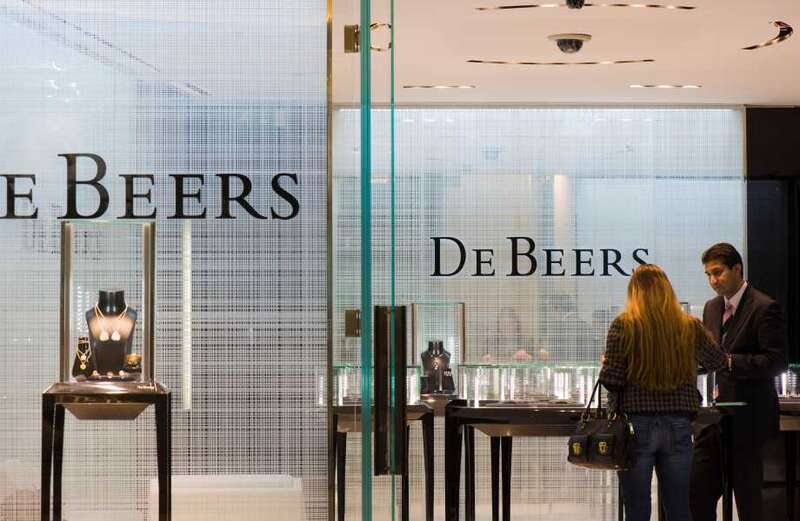DIAMONDS are no longer mining firm Anglo American's best friend — as it ditches De Beers.
The move comes in a bid to save itself from a £34billion takeover.

Just one day after revealing it had rejected a sweetened bid from Australian-listed BHP, Brit giant Anglo American revealed its own radical break-up plan.
Boss Duncan Wanblad yesterday unveiled the scheme to simplify the business and focus on its highly-prized copper mines and iron ore.
BHP’s bid has shocked bosses into a long-awaited shake-up.
 From tongue scraping to saying no, here are 12 health trends to try in 2023
From tongue scraping to saying no, here are 12 health trends to try in 2023
Anglo American will spin-off or sell its De Beers diamond business, which has become increasingly volatile due to a luxury market slowdown and the rise of lab-grown versions.
De Beers, whose latest ad campaign features actress Lupita Nyong’o, has 2,400 jewellery shops worldwide.
Analysts said De Beers — once responsible for 85 per cent of the world’s mined diamonds — could be worth as much as £4.25billion. If it was listed in London, De Beers would be a FTSE 100 company in its own right.
Anglo American is also going to exit its South African platinum Amplats business and is delaying the opening of its giant Woodsmith fertiliser mine in Whitby, Yorkshire.
The business will scale back spending from £790million a year to just £158million.
Shrinking company assets could make the business more bite-size for BHP — or another suitor. But Mr Wanblad said that by the time the restructuring was complete in 2025, Anglo American “is going to be extremely highly valued — to the extent that anybody who wants to buy us is going to have to pay an enormous price”.
Anglo American has said BHP’s bid of £27.53 a share undervalues the company but yesterday its shares fell by 3.49 per cent to £26.12.
STAMP BOOTY

THE boss of betting giant Flutter has called on the Government to abolish stamp duty on share trading if it wants to revive the London Stock Exchange.
Flutter, which owns Paddy Power, is shifting its listing to New York this month as the US is now the biggest part of the business.
But it is another blow for the LSE which has been hit by an exodus of companies.
Flutter chief Peter Jackson said scrapping stamp duty would make trading in London more attractive, boost the number of shares being traded, and raise valuations.
 How to de-clutter if you have a beauty stash to last you a lifetime
How to de-clutter if you have a beauty stash to last you a lifetime
The duty is fixed at 0.5 per cent of an asset when buying and selling shares.
Flutter posted a 16 per cent rise in revenues to £2.6billion. Losses widened to £141million after writing down some takeovers.
The firm revealed it took nearly 35million bets at the Cheltenham Festival, losing £3million on Slade Steel.
TESCO'S £10M PAY FOR BOSS
TESCO chief executive Ken Murphy bagged £9.9million last year, a record pay day for a supermarket boss.
It is more than double his £4.4million award last year and 433 times the average salary for Tesco’s lowest-paid staff.
Defending the payout, Tesco said it hit “stretching targets in a highly competitive sector” and had created value for customers.
But Luke Hildyard, of fair pay campaigners the High Pay Centre, said: “You couldn’t really get a better indicator of how the UK economy serves the interests of the super-rich at the expense of everybody else than this.”
The grocer doubled operating profits to £2.8billion last year and grew revenues by four per cent to £68.2billion.
Mr Murphy said it is the most competitive it had ever been after cutting 4,000 prices and boosting Clubcard discounts.
It has also increased staff hourly pay to £12.02.
BIDEN TAX ON CHINA
US president Joe Biden has ramped up tariffs on cheap Chinese electric vehicles from 25 per cent to 100 per cent.
It comes after China’s BYD electric car brand briefly overtook America’s Tesla in car sales at the end of last year.
Biden accused China of “flooding global markets with artificially low-priced exports”.
His measures also target semiconductors, batteries, solar cells and minerals — all used in “green” technologies.


































